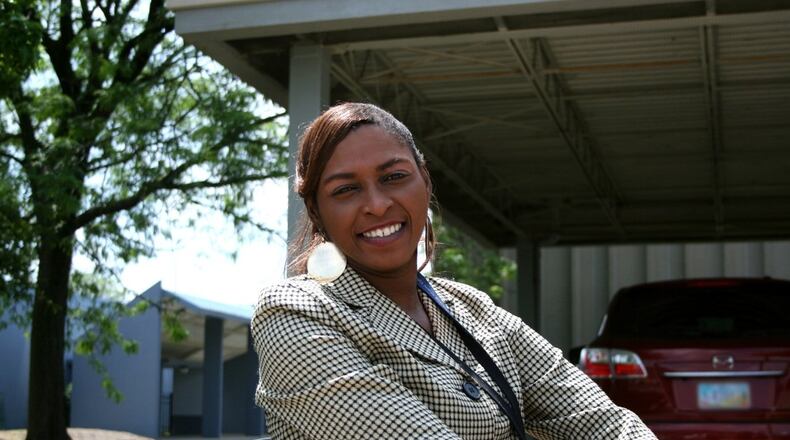Although there are other ways to take care of one’s restroom needs, including wearing protective undergarments, no one wants to sit in their soil for a long time while he or she is supposed to be having fun or taking care of business. Not only is sitting in soil uncomfortable, but it can also cause conditions that can be harmful to one’s health. Society is OK making sure public spaces are equipped with changing tables for babies, but when it comes to people with disabilities who have exceeded the baby weight, this necessity is overlooked.
Just because one has a disability doesn’t mean he or she shouldn’t go anywhere, and it doesn’t mean he or she shouldn’t have access to restrooms with a changing table while they’re out.
This issue affects many with disabilities, including my friend Jennifer Corcoran, a parent of a young man with a disability and Program Consultant for the Montgomery County Board of Developmental Disabilities Services.
“My son, Matthew, just turned 22 and he has been fully included in his family, community, church, and school since birth until he became too big for the baby changing tables and changing on my van floor became impossible,” Jennifer Corcoran said. “Now we stay home or take the chance of going to an outing and having to come back home if he soils or wets.”
At least 4 percent of Ohio’s population need Height Adjustable Adult Changing Tables (Universal Changing Tables) continence care. Without the tables, people are being changed on bathroom floors, in open public places such as in vehicles and on the ground — or just staying home. Some people even stop eating and drinking for a while so they can participate for activities that require more than a couple hours. This affects aging individuals and those with disabilities, as well as family members, friends, and caregivers who cannot spend time in the community with their loved ones. Height adjustable tables are essential so caregivers can safely transfer the individual to a lower table and raise it to complete the changing.
The Montgomery County Board of Developmental Disabilities Services sought funds to purchase Universal Changing Tables through the American Rescue Plan Act (ARPA) and received a small allocation toward this project. Their plan is to install tables at several high-traffic locations in our community. But they need everyone’s help to spread the word about this issue. The goal is to get organizations and businesses to recognize the need for height-adjustable adult changing tables and add them to their facilities or factor the tables into their new construction plans.
People with disabilities and their families shouldn’t be excluded from taking part in activities most of us take for granted.
“This is the only issue that has ever stopped Matthew from being a productive member of his community.” Jennifer said. “It also takes me out of society since he is with me so much.”
To learn more about how you can support this effort, visit changingspacescampaign.com.
For support in learning how you can add an adult changing station into your facility, please contact Jennifer Corcoran at 937-266-8035 or jcorcoran@mcbdds.org.
Shari Cooper is a public relations assistant at Goodwill Easter Seals Miami Valley and an advocate for disability inclusion.
About the Author
